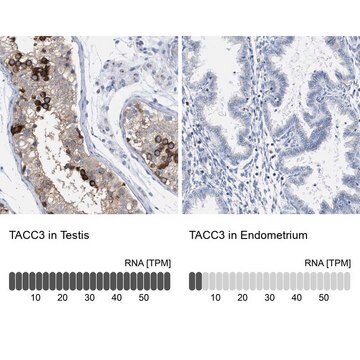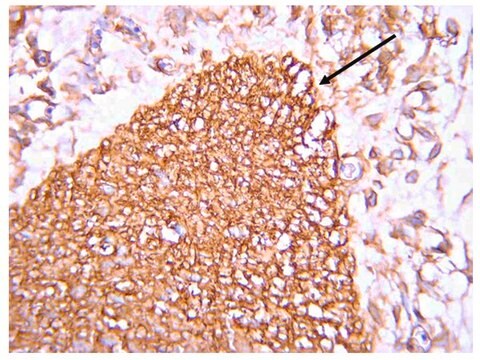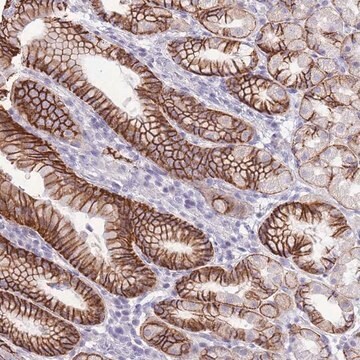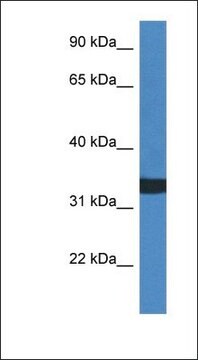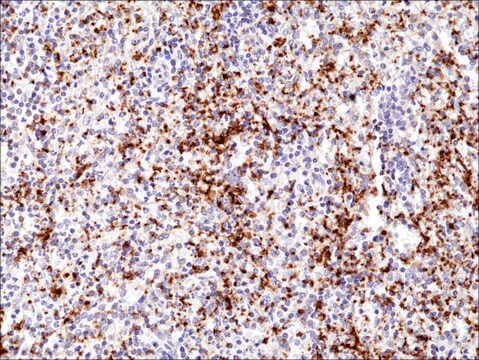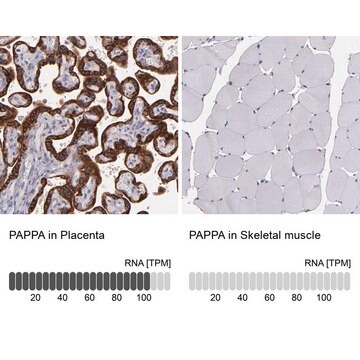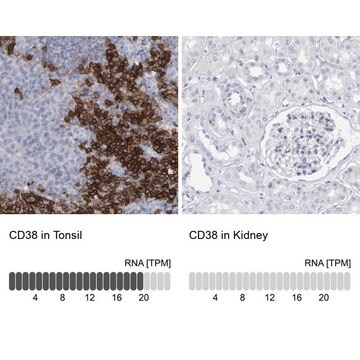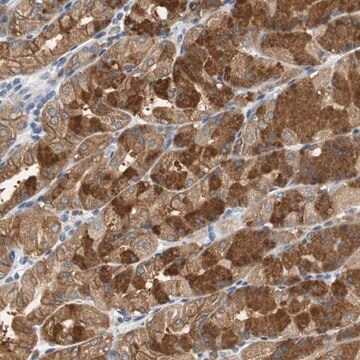ABE1942
Anti-TACC3 Antibody
from rabbit, purified by affinity chromatography
Synonyme(s) :
Transforming acidic coiled-coil-containing protein 3, ERIC-1
About This Item
WB
western blot: suitable
Produits recommandés
Source biologique
rabbit
Niveau de qualité
Forme d'anticorps
affinity isolated antibody
Type de produit anticorps
primary antibodies
Clone
polyclonal
Produit purifié par
affinity chromatography
Espèces réactives
human
Technique(s)
immunocytochemistry: suitable
western blot: suitable
Numéro d'accès UniProt
Conditions d'expédition
ambient
Modification post-traductionnelle de la cible
unmodified
Informations sur le gène
human ... TACC3(10460)
Description générale
Spécificité
Immunogène
Application
Immunocytochemistry Analysis: A representative lot detected TACC3 spindle immunoreactivity in untransfected, but not TACC3 siRNA-transfected, SKOV-3 and OVCAR3 ovarian cancer cells (Rao, R., et al. (2014). Oncogene. 33(33):4242-4252).
Western Blotting Analysis: A representative lot detected much higher TACC3 expression in SKOV-3, OVCAR3 ovarian cancer cells than in non-cancerous hTERT-RPE, MCF10A, and 184B5 cells. Cellular TACC3 siRNA delivery abolished target band detection (Rao, R., et al. (2014). Oncogene. 33(33):4242-4252).
Epigenetics & Nuclear Function
Qualité
Western Blotting Analysis: 1 µg/mL of this antibody detected TACC3 in 10 µg of HEK293 cell lysate.
Description de la cible
Forme physique
Stockage et stabilité
Handling Recommendations: Upon receipt and prior to removing the cap, centrifuge the vial and gently mix the solution. Aliquot into microcentrifuge tubes and store at -20°C. Avoid repeated freeze/thaw cycles, which may damage IgG and affect product performance.
Autres remarques
Clause de non-responsabilité
Vous ne trouvez pas le bon produit ?
Essayez notre Outil de sélection de produits.
Code de la classe de stockage
12 - Non Combustible Liquids
Classe de danger pour l'eau (WGK)
nwg
Point d'éclair (°F)
Not applicable
Point d'éclair (°C)
Not applicable
Certificats d'analyse (COA)
Recherchez un Certificats d'analyse (COA) en saisissant le numéro de lot du produit. Les numéros de lot figurent sur l'étiquette du produit après les mots "Lot" ou "Batch".
Déjà en possession de ce produit ?
Retrouvez la documentation relative aux produits que vous avez récemment achetés dans la Bibliothèque de documents.
Notre équipe de scientifiques dispose d'une expérience dans tous les secteurs de la recherche, notamment en sciences de la vie, science des matériaux, synthèse chimique, chromatographie, analyse et dans de nombreux autres domaines..
Contacter notre Service technique